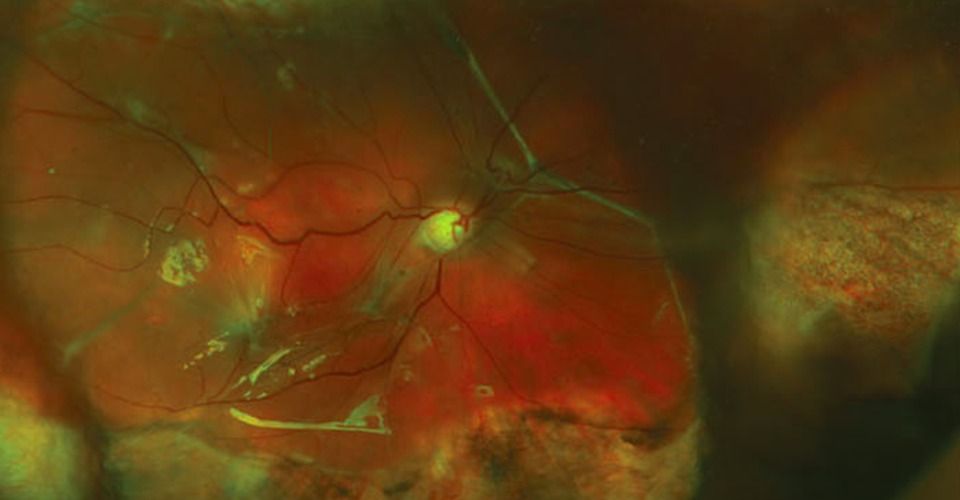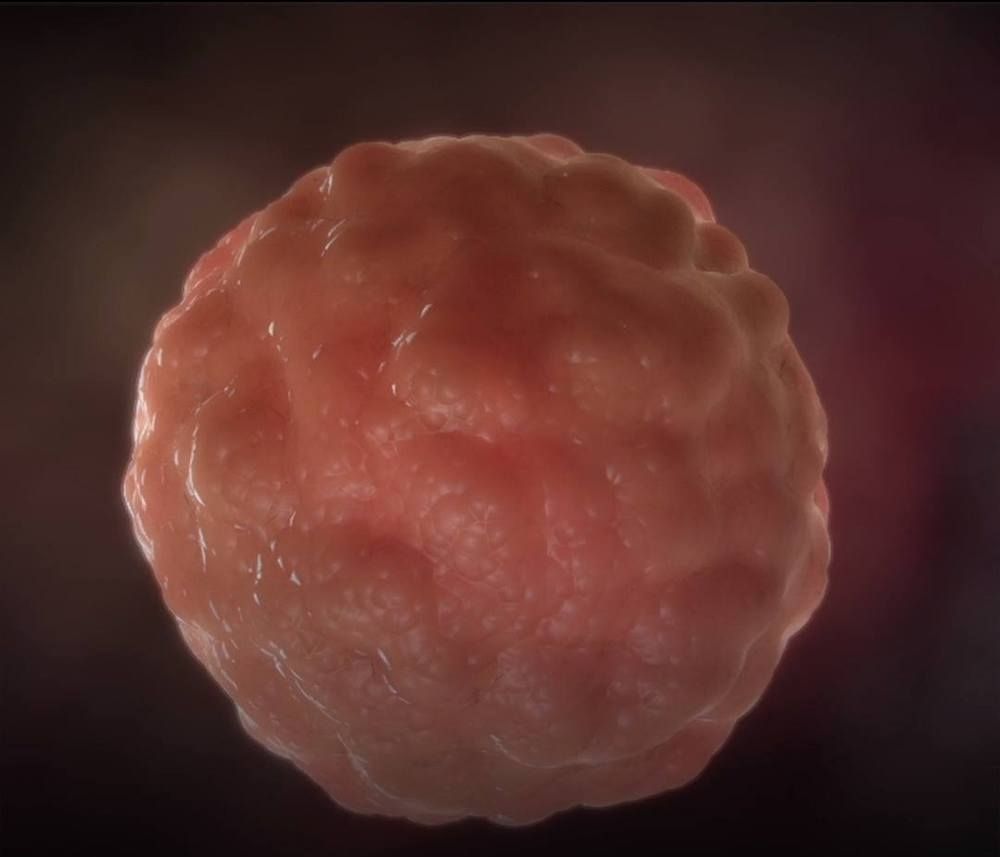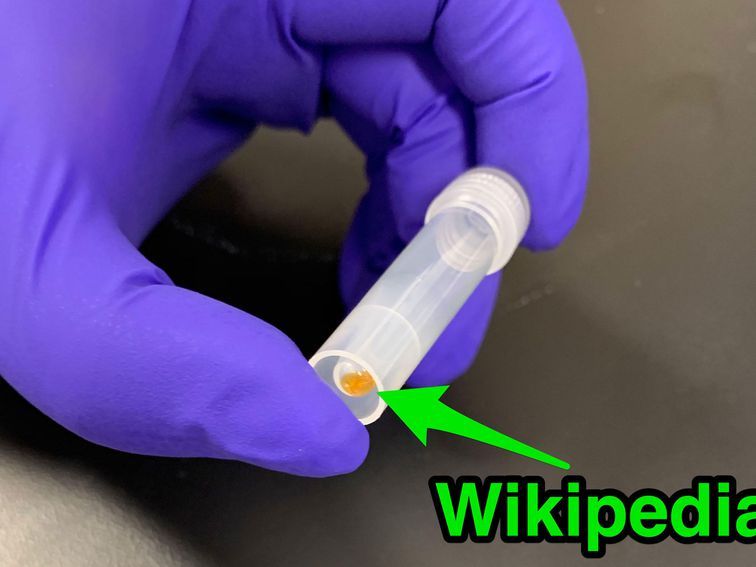Page 8568
Jun 30, 2019
Planet in triple-star system may be our best chance to find alien life
Posted by Michael Lance in category: alien life
An exoplanet 22.5 light years away that orbits in a system with three stars has the perfect conditions for us to search its atmosphere for signs of alien life.
Jun 30, 2019
If you can pick up an electromagnetic phone call, if you can get an EEG, you can apply the same science to all electromagnetic waves, EVERY ELECTRON IN THE UNIVERSE THAT’S IN MOTION CREATES AN ELECTROMAGNETIC WAVE
Posted by Richard Christophr Saragoza in categories: cybercrime/malcode, science
Jun 30, 2019
A Woman Went Blind After Stem Cells Were Injected in Her Eyes
Posted by Paul Battista in category: biotech/medical
Jun 30, 2019
Researchers Engineer Cancer Cells To Fight Their Own Kind
Posted by Paul Battista in categories: biotech/medical, genetics
Jun 30, 2019
How Self-Driving Cars Can Figure Out Parking
Posted by Dan Kummer in categories: mapping, robotics/AI, transportation
Robocars need to park sometimes, and find places to drop off and pick up passengers. The vast array of rules for public and private parking and pick-up spaces is more complex than the rules of the road, so a public and private mapping system is called for.
Jun 30, 2019
The Urge to Radical Life Extension
Posted by Mike Ruban in categories: biotech/medical, life extension

https://youtube.com/watch?v=lA4DbN01q70
To the scientists here, could humans live for 300 years?
Those portions of the modern longevity community interested in bringing an end to aging and extending healthy human life span indefinitely tend to be the older portions, people who have been a part of the broader movement for quite some time. Newcomers tend to be more moderate, aiming at lesser goals. Perhaps this is a result of the successful projects, such as the SENS Research Foundation and Methuselah Foundation, tending to moderate their rhetoric as they attract a broader and larger base of support. I think that this road to moderation might be a problem, and that there is thus a continued role for those who loudly declaim that the goal is to control aging absolutely, via new medical technology, and that the natural consequence of that control is healthy, active, youthful life that extends for centuries or more.
Jun 29, 2019
How DNA ‘hotspots’ snarl the search for cancer genes
Posted by Genevieve Klien in categories: biotech/medical, genetics
Jun 29, 2019
Startup Catalog has jammed all 16GB of Wikipedia’s text onto DNA strands
Posted by Klaus Baldauf in categories: biotech/medical, computing
Biological molecules will last a lot longer than the latest computer storage technology, Catalog believes.
Jun 29, 2019
How quantum brain biology can rescue conscious free will
Posted by Richard Christophr Saragoza in categories: biological, computing, information science, neuroscience, quantum physics
Conscious “free will” is problematic because brain mechanisms causing consciousness are unknown, measurable brain activity correlating with conscious perception apparently occurs too late for real-time conscious response, consciousness thus being considered “epiphenomenal illusion,” and determinism, i.e., our actions and the world around us seem algorithmic and inevitable. The Penrose–Hameroff theory of “orchestrated objective reduction (Orch OR)” identifies discrete conscious moments with quantum computations in microtubules inside brain neurons, e.g., 40/s in concert with gamma synchrony EEG. Microtubules organize neuronal interiors and regulate synapses. In Orch OR, microtubule quantum computations occur in integration phases in dendrites and cell bodies of integrate-and-fire brain neurons connected and synchronized by gap junctions, allowing entanglement of microtubules among many neurons. Quantum computations in entangled microtubules terminate by Penrose “objective reduction (OR),” a proposal for quantum state reduction and conscious moments linked to fundamental spacetime geometry. Each OR reduction selects microtubule states which can trigger axonal firings, and control behavior. The quantum computations are “orchestrated” by synaptic inputs and memory (thus “Orch OR”). If correct, Orch OR can account for conscious causal agency, resolving problem 1. Regarding problem 2, Orch OR can cause temporal non-locality, sending quantum information backward in classical time, enabling conscious control of behavior. Three lines of evidence for brain backward time effects are presented. Regarding problem 3, Penrose OR (and Orch OR) invokes non-computable influences from information embedded in spacetime geometry, potentially avoiding algorithmic determinism. In summary, Orch OR can account for real-time conscious causal agency, avoiding the need for consciousness to be seen as epiphenomenal illusion. Orch OR can rescue conscious free will.
Keywords: microtubules, free will, consciousness, Penrose-Hameroff Orch OR, volition, quantum computing, gap junctions, gamma synchrony.
We have the sense of conscious control of our voluntary behaviors, of free will, of our mental processes exerting causal actions in the physical world. But such control is difficult to scientifically explain for three reasons:

















